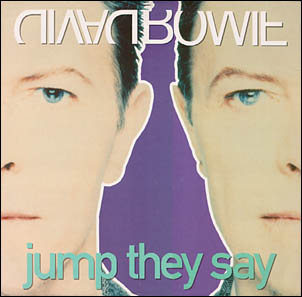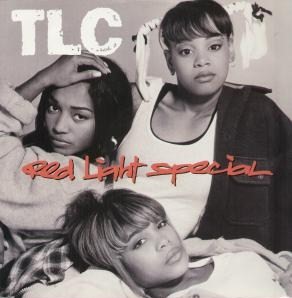
Nile Gregory Rodgers Jr. is an American musician, songwriter and record producer. The co-founder of Chic, he has written, produced, and performed on records that have sold more than 500 million albums and 75 million singles worldwide.

Lester Bowie was an American jazz trumpet player and composer. He was a member of the Association for the Advancement of Creative Musicians and co-founded the Art Ensemble of Chicago.

Black Tie White Noise is the eighteenth studio album by the English musician David Bowie, released on 5 April 1993 through Savage Records in the United States and Arista Records in the United Kingdom. Conceived following Bowie's marriage to the model Iman and the disbandment of his rock band Tin Machine, it was recorded throughout 1992 between studios in Montreux, Los Angeles and New York City. Bowie co-produced with his Let's Dance (1983) collaborator Nile Rodgers, who voiced dissatisfaction with the project in later decades. The album features several guest appearances, including previous collaborators Mike Garson and Mick Ronson, and new arrivals Lester Bowie and Chico O'Farrill.

The Buddha of Suburbia is the nineteenth studio album by the English musician David Bowie, originally released on 8 November 1993 through Arista Records in the United Kingdom and Europe. The project originated following an interview between Bowie and the novelist Hanif Kureishi during a press tour for Black Tie White Noise (1993), where Bowie agreed to compose music for an upcoming adaptation of Kureishi's novel The Buddha of Suburbia (1990). After making basic tracks, Bowie decided to turn the project into a full album. Working with the musician Erdal Kızılçay, recording took place at Mountain Studios in Montreux, Switzerland and was completed in six days; Mike Garson contributed piano overdubs.

"Hunter" is a song by British singer Dido from her debut album, No Angel (1999). The song was released as the third single from the album in the United States on 18 June 2001. "Hunter" reached number 17 on the UK Singles Chart and peaked within the top 50 in Australia, France, Greece, Ireland, and New Zealand. In the US, it entered the top 20 on two Billboard charts.

"Cat People (Putting Out Fire)" is a song recorded by the English singer-songwriter David Bowie as the title track of the 1982 erotic horror film Cat People. Bowie became involved with the track after director Paul Schrader reached out to him about collaborating. The song was recorded at Mountain Studios in Montreux, Switzerland in July 1981. Bowie wrote the lyrics, which reflected the film, while the Italian producer Giorgio Moroder composed the music.

"Let's Dance" is a song by the English singer-songwriter David Bowie, originally included as the title track of his 1983 album of the same name. Co-produced by Nile Rodgers of Chic, it was recorded in late 1982 at the Power Station in New York City. With the assistance of engineer Bob Clearmountain, Rodgers transformed the song from its folk rock origins to a dance number through studio effects and new musicians Bowie had yet to work with. Bowie hired then-unknown Texas guitarist Stevie Ray Vaughan, who added a blues-edge.

"Real Cool World" is a song from the soundtrack of the American 1992 animated black comedy fantasy film Cool World. It is performed by British singer-songwriter David Bowie, and was released on 10 August 1992, representing his first new solo material since the dissolution of the band Tin Machine.

"Jump They Say" is a song by English singer-songwriter David Bowie from his 18th album Black Tie White Noise (1993). It was written by Bowie, produced by Nile Rodgers and released as the first single from the album in March 1993 by Arista Records. While Bowie opted not to tour for the Black Tie White Noise album, the song was performed on his 1995–96 Outside Tour and released as part of the live concert No Trendy Réchauffé (2020). The accompanying music video for "Jump They Say" was directed by Mark Romanek and received heavy rotation on MTV Europe.

"Black Tie White Noise" is the title track from British singer-songwriter and actor David Bowie's 18th album of the same name (1993). Featuring guest vocals by Al B. Sure!, it was written by Bowie, produced by Nile Rodgers and released as the second single from the album in June 1993 by Arista, BMG and Savage. It peaked at number 36 in the UK. The accompanying music video for the song was directed by Mark Romanek.

"The Buddha of Suburbia" is the theme song to the BBC TV series of the same name, released by British musician David Bowie in November 1993 by Arista Records. It was re-recorded with American musician Lenny Kravitz for Bowie's 19th studio album, also titled The Buddha of Suburbia (1993), and inspired by his musical score for the series. The single reached No. 35 on the UK Singles Chart.
"Nite Flights" is a song by the American singer-songwriter Scott Walker under his given name Scott Engel. It was first recorded and released by Walker's pop group The Walker Brothers as the title track of their final album, 1978's Nite Flights.

"Pallas Athena" is a song written by David Bowie in 1993 for the album Black Tie White Noise. A live version of the song was recorded and released in 1997 during Bowie's Earthling Tour.
"Bring Me the Disco King" is a song written by David Bowie in the early 1990s, and recorded three times, although only the last recording was released, as part of Bowie's Reality album in 2003. A remix was also released in 2003 as part of the Underworld movie soundtrack.

"Swear It Again" is a song by Irish boy band Westlife. The ballad was released on 19 April 1999 in the United Kingdom as the first single from their self-titled debut album (1999). The song peaked at number one on the UK Singles Chart for two weeks, giving Westlife their first of 14 UK number-one singles. "Swear It Again" is Westlife's only single to have charted in the US, peaking at number 20 on the Billboard Hot 100 and ranking number 75 on the Billboard Hot 100 year-end chart in 2000.

All Saints is the name of two different compilation albums of instrumental works by the English musician David Bowie.

Gold – 20 Super Hits is a 1992 greatest hits album by group Boney M. Shortly after record label PolyGram had acquired the rights to the ABBA back catalogue and had issued the multimillion-selling hits package Gold: Greatest Hits, BMG and producer Frank Farian followed suit with Boney M.'s Gold – 20 Super Hits which resulted in their best chart entry in the UK and most other European countries since 1980's The Magic of Boney M. – 20 Golden Hits.

"Red Light Special" is a song by American vocal girl group TLC for their second studio album, CrazySexyCool (1994). Written and produced by Babyface, LaFace and Arista Records released the song as the second single from the album on February 17, 1995. The song achieved chart success, reaching number one on the US Billboard Top 40/Rhythm-Crossover chart and number two on the Billboard Hot 100 chart. Matthew Rolston filmed its music video, which features the group performing in a brothel.

David Bowie: Black Tie White Noise is a 1993 film accompanying the release of the David Bowie album of the same name. The primary purpose of the film was to remove the need of a tour to promote the album. It was directed by long time Bowie collaborator David Mallet, and was originally released in 1993 on VHS.

Brilliant Adventure (1992–2001) is a box set by English singer-songwriter David Bowie, released on 26 November 2021. A follow-up to the compilations Five Years (1969–1973), Who Can I Be Now? (1974–1976), A New Career in a New Town (1977–1982) and Loving the Alien (1983–1988), the set covers the period of Bowie's career from 1992 to 2001, commonly regarded by analysts as an artistic renaissance following his commercially successful but critically maligned work in the 1980s. However, Bowie's 1988–1992 tenure with the hard rock group Tin Machine is excluded. The set comprises eleven compact discs or 18 LPs.


















